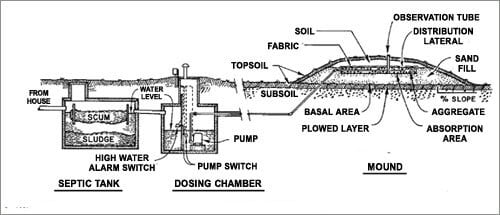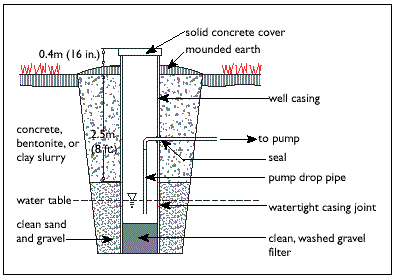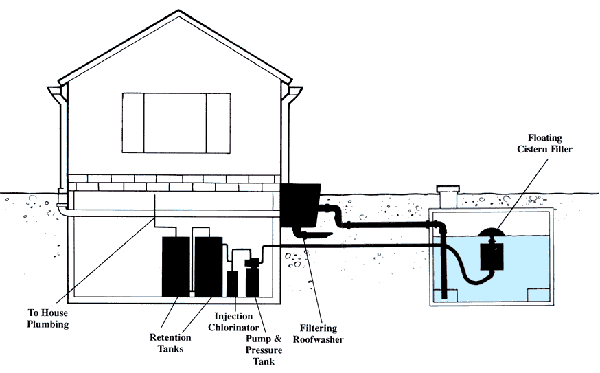If you are building in a rural area there is a good chance you will require a sewer system or a freshwater system installed or updated. There are several systems available, head about which option may be the best for you.
Sewer System Options
There are a number of options to choose from based on your requirements and the amount you are willing to spend.

Septic Field
The first option is a septic mound or septic field. Both are very similar in nature. The effluent is pumped away from the dwelling into pipes that are buried under the ground. The liquid is expelled through holes on the top of the pipes and it seeps slowly into the ground being dispersed so nature can recycle it. The solids or black water is pumped into a tank that the solids fall to the bottom and pumps out every 3 to 5 years depending on the volume and size of tank.
Treatment Plant
The second option is a treatment plant. The treatment plant is a more expensive option, but the liquid is dispersed away from the dwelling in a wood chipped nature area, and is more environmentally friendly. The wastewater goes through a series of filters and treatments, which essentially makes the water that is dispersed drinkable. I am a believer in this system but as far as drinkable water, you first.
Fresh Water Systems
With fresh water system there are two options, or sometimes three if you are closer to an urban area.

Well System
The first option is a well system. A quality well system has the ability to supply free water to a residence for life. A disadvantage to this system is that the water quality is less than the quality of water from an urban area. Many times the water can be high in iron as well as high in sulfur content. Though many times it is safe for drinking, it can leave rust stains on your toilet, sinks and tubs, as well leaving an egg type smell.

Cistern System
The second option is a cistern system. A cistern is a tank that is put in the ground or basement, pending the design of the home, which holds water that is purchased from a water hauling company. The benefit of a cistern is that the water usually comes from an urban location making it safe to drink, wash and cook with. The disadvantage is that the homeowner is required to pay for this service.
Trickle System
Finally, if you are lucky enough to live in a rural area that is close to an urban area, there may be programs available. You might be able to tie into a trickle system, which fills your cistern for you through the municipal services. Or, you might be able to tie into an existing municipal system, which will give you full access to city water, just like in an urban area.